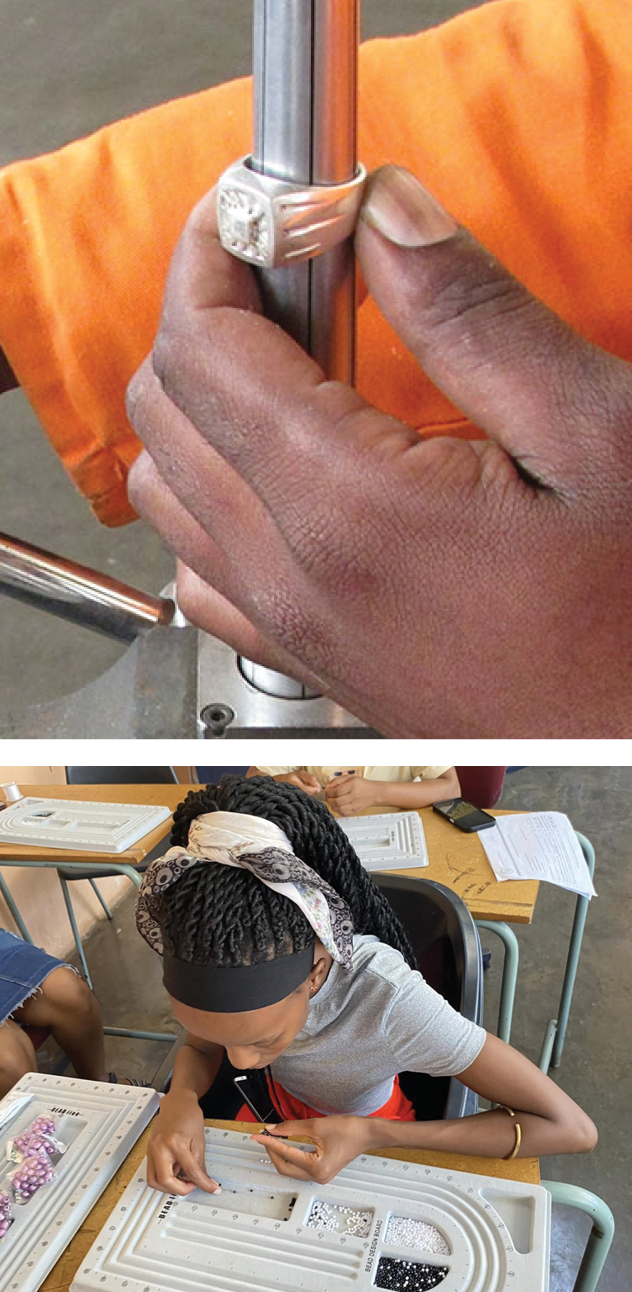The jewellery industry in South Africa is quietly evolving as more women make their mark in a traditionally male-dominated field. From intricate beadwork to modern metal designs, women are blending cultural heritage with fresh creativity, capturing interest both locally and internationally.
For many, jewellery-making is more than just art; it is a source of income, cultural pride, and empowerment. In rural areas, women have long used jewellery craft to support families and communities. However, their contributions have often been overlooked by mainstream markets.
Support programmes, including those offered by organisations such as the Limpopo Jewellery Business Incubator (LJBI), are helping to change this. By offering training, business skills, and access to markets and equipment, these initiatives are enabling women to turn informal crafts into sustainable businesses.
Demand for authentic, handcrafted African jewellery is growing globally. Consumers are seeking ethically made, locally crafted pieces that tell unique stories. This shift offers women jewellers the chance to expand into tourism, exports, and online sales.

If young women want to tap into this career, here’s what to consider:
To become a jewellery maker in South Africa, one will need to acquire the necessary skills and knowledge through education and training, potentially culminating in a formal qualification or trade test.
Technical and Vocational Education and Training (TVET) colleges in South Africa offer programmes in Jewellery Design and Manufacturing. These equip students with the practical and theoretical skills needed for a career in the jewellery industry, including design, manufacturing, and business skills. Some universities also offer courses in this discipline.
Once the theoretical aspect is completed, the next step is a Jewellery-Making Trade Test, which assesses the practical skills and knowledge of individuals seeking to become qualified artisans in the jewellery manufacturing industry.
Women have the option of approaching the National Empowerment Fund’s Women Empowerment Fund, aimed at accelerating the provision of funding to businesses owned by black women.
There is also the Small Enterprise Development and Finance Agency (SEDFA), which supports small businesses and cooperatives.
Despite these opportunities, women face barriers such as limited access to finance, which restricts their ability to purchase materials or scale operations. Market visibility remains a challenge, as many work in isolation without access to networks or formal business training. Balancing business demands with family responsibilities can further limit growth.
Tackling these challenges requires collaboration between government, the private sector, and support organisations. Investments in digital skills, financial literacy, and export readiness are key to women’s long-term success.
Building stronger networks and improving access to affordable finance, such as micro-loans and grants, can unlock growth. Partnerships between women artisans and larger industry players will help create inclusive value chains. Sustainable and ethical production practices will also increase competitiveness internationally.
Women jewellers bring resilience, creativity, and entrepreneurship to an evolving industry. Their work adds cultural value and supports economic development. With the ongoing support from organisations like LJBI, women artisans across South Africa are poised to shine on both local and global stages.
This Women’s Month and beyond, their brilliance reminds us that when women rise, the whole nation shines.
Merriam Mabetlela works for the Limpopo Jewellery Business Incubator (LJBI).
For more information on funding visit https://www.sedfa.org.za/



 Facebook
Facebook Twitter
Twitter WhatsApp
WhatsApp